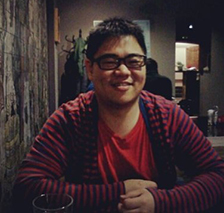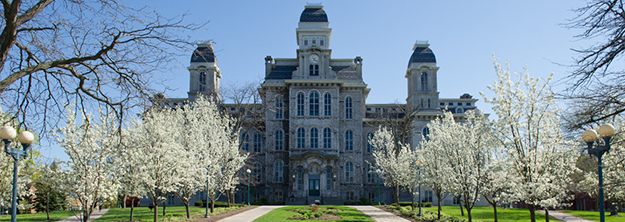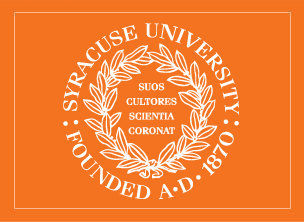
Sean Wang ’13
Sean Wang has certainly made the most of his time here. Wang received an M.A. in geography in 2013, and is now enrolled as a Ph.D. student in the Department of Geography, and as a College of Arts and Sciences student in the Department of Women’s and Gender Studies. Wang holds an NSF Graduate Research Fellowship, and his studies have taken him abroad to Hong Kong, where he examines the phenomenon of birth tourism.
In general, what is birth tourism? How/why has it become increasingly relevant in the United States, and other countries?
Usually considered a form of medical tourism, “birth tourism,” or “maternity tourism,” describes the practice where pregnant women cross international borders to receive maternity care and give birth. Although motivations behind birth tourism vary, many opponents point to the lure of citizenship or legal status for either expectant mothers or their children as a significant pull factor. Alleged instances of citizenship tourism have figured prominently in recent citizenship debates in both Canada and the U.S., despite being small in number compared to immigrant populations at large. Based on my research, I would argue actually that the amount of attention it has received is disproportionately high, especially in this presidential election cycle, when many Republican candidates have co-opted this issue as part of their larger platforms.
What sparked your interest in this topic?
As someone who was born in the U.S. but raised abroad as a child, I was naturally drawn to issues regarding citizenship and feelings of national belonging. But my first encounter with birth tourism was quite serendipitous. I happened to be in southern California for a conference and was staying with extended family in 2013, and I was on the bus when I saw TV reports of a protest against birth tourism organized by anti-immigration groups in the area. I was curious to follow up on that, and over time it proved to be an excellent empirical case that helped make sense of many of the theoretical arguments I had been studying regarding citizenship, immigration, and family and child welfare.
How did you decide on Syracuse for graduate school?
I came in 2011 as a master’s student because Syracuse University has one of the most well-regarded geography departments in the country. The winters were tough but the community of scholars more than made up for that. I had opportunities to go elsewhere for my Ph.D. but I decided to stay to work with my current advisor Jamie Winders and the excellent faculty members in both geography and women’s and gender studies.
How has your research experience been? Why did you choose Hong Kong, and how long will you be abroad?
An NSF Doctoral Dissertation Research Improvement Grant supports my research fieldwork, and thanks to that, I was able to travel first to southern California, which is a key destination of birth tourists, and then to various origin countries of birth tourism. I have been conducting research abroad since September 2015, and I am currently in Hong Kong to research histories of Chinese birth tourism from Mainland China to Hong Kong.
After you receive your graduate degree, what’s next? What do you hope to do?
I hope to continue teaching and research at a university, hopefully in the Pacific Northwest because I've been away from home for quite a while now.
Outside of academics, what are your hobbies? What do you enjoy doing, and are you involved in any groups on campus?
I watch sports—soccer and volleyball, mostly—and generally keep up with my beloved Washington Huskies (my alma mater). I also sing in choirs, though at the moment I’m too busy for regular rehearsals; I was in the University Singers.
On campus, I am a member of various student groups, including the feminist pedagogy reading group and the Graduate Student Union, which advocates for teaching assistant unionizing. I also support student advocacy efforts.
Story by Austin Galovski, work-study student in the Office of News Services




